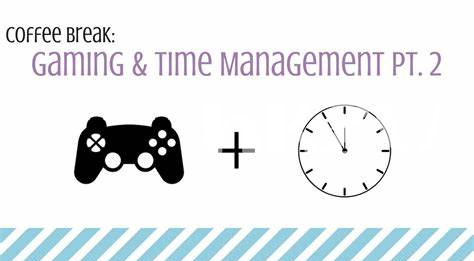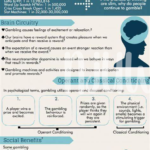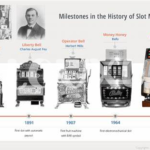Discover Effective Strategies for Managing Gambling Habits to Ensure Your Leisure Time Is Spent Wisely, Enhancing Both Enjoyment and Time Management.
Time Well Spent? the Psychology of Gambling and Time
- 🎰 the Thrill of the Chase: Why We Gamble
- ⏳ Perception of Time in the Zone of Gambling
- 🧠 the Dopamine Effect: Gambling’s Grip on Our Minds
- 🔄 the Cycle of Loss and the Hope for Gain
- ⚖️ Balancing Act: When Gambling Tips from Hobby to Habit
- 🛑 Know When to Fold: Strategies for Time Management
🎰 the Thrill of the Chase: Why We Gamble
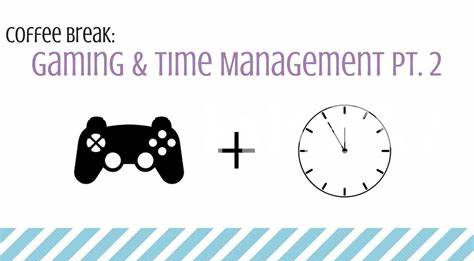
Humans have always been drawn to games of chance, seduced by the allure of big wins and the excitement that comes with rolling the dice. This magnetic pull towards gambling springs from deeper psychological roots, where the thrill of the chase plays a significant role. It’s an exhilarating dance with fate, driven by the human desire to test limits and push boundaries. The outcome is uncertain, but the possibility of victory—no matter how slim—keeps us coming back for more.
The involvement in gambling tickles the reward system of our brain, much like the effect narcs have on our physiology. It releases a flood of dopamine, akin to receiving a cocktail of ‘happy pills,’ providing a high that’s hard to resist. This biochemical rush and the anticipation of the unknown play vital roles in enticing individuals to lay another bet or spin the wheel one more time. It’s a cyclical exchange where the potential reward outweighs the risk in the gambler’s mind.
Crucial to understanding this phenomenon is recognizing how time warps within the environs of gambling. Casinos are masterfully designed to make teh passage of time slip unnoticed, lacking windows and clocks, encouraging players to stay entranced in the game. This distortion leads to what many term as ‘the zone’, a state of flow where everything else fades into the background – worries, responsibilities, even basic human needs.
| Factor | Description |
|---|---|
| Thrill of Victory | The adrenaline rush associated with winning. |
| Dopamine Release | Chemical release in the brain that creates a feeling of happiness and satisfaction. |
| Time Distortion | Loss of awareness of the passage of time while engaged in gambling activities. |
| Risk and Reward | Calculating the stakes against the potential gain. |
Thus, gambling becomes a blend of risk, reward, and the relentless pursuit of happiness, encapsulated in moments that seem to defy the strictures of time. It appeals to the sense of adventure, the need to break free from the mundanity of daily life, and the inherent human desire to challenge the odds. Whether it’s the flip of a card, the spin of a wheel, or the roll of dice, gambling offers a spectacle of uncertainty that’s both frightening and thrilling—a true test of chance and human will.
⏳ Perception of Time in the Zone of Gambling

In the intriguing world of gambling, time tends to warp, creating a unique phenomenon that captures the attention of both eager punters and scholars alike. The thrill that comes with the gamble, the suspense of awaiting the outcome, creates an atmosphere where time seems to stand still. It’s in these moments, often referred to as being ‘in the zone,’ that the perception of time becomes secondary to the exhilaration of the potential win. This suspension of regular time perception is not merely a coincidence but a cunningly designed aspect of gambling environments, from the cacophony of slot machines to the absence of windows and clocks, all ensuring that players remain engrossed, detached from the tick-tock of the outside world.
This phenomenon has deep roots in psychology, particularly in how gambling exploits our brain’s reward system. The release of dopamine, a neurotransmitter associated with pleasure and reward, plays a pivotal role. Each near-miss, each win, sends a surge of this ‘happy pill’ across our brain, making the concept of time slip even further away. Within this bubble, hours can pass unnoticed, a factor that gambling establishments bank on. This alteration in time perception is both a testament to the power of our neural pathways and a cautionary tale of how easily they can be manipulated in settings engineered to capitalise on our psychological vulnerabilities.
Moreover, understanding the mechanics of this time distortion offers potent insights into gambling and time managment. Strategies to counteract the loss of time awareness include setting alarms, taking regular breaks, or even wearing a watch to keep track of time actively. These approaches encourage gamblers to remain anchored in reality, making conscious decisions about how long they wish to engage with gambling activities. It’s a balancing act, recognizing the fine line between a hobby and an all-consuming habit that can warp one’s perception of time and reality.
Yet, it’s essential to approach this topic with empathy and awareness. The warp in time perception isn’t simply a matter of weak willpower but rather an orchestrated effect of an environment designed to entice and retain. By fostering a dialogue centered around understanding these psychological nuances—exploring the why and how—we equip individuals with the knowledge to navigate their engagements more mindfully. This isn’t about demonizing gambling but advocating for informed choices and healthier gambling habits, where time spent is a conscious decision, not a moment lost to the twilight zone of casinos.
🧠 the Dopamine Effect: Gambling’s Grip on Our Minds
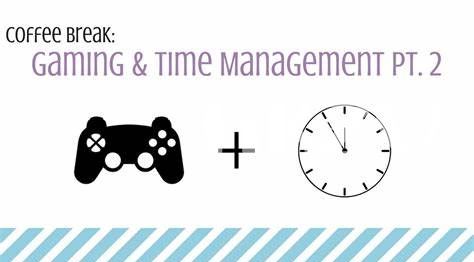
In the riveting world of gambling, it’s fascinating to observe how the brain’s reward system is hijacked by the lure of the win. The release of dopamine, a key neurotransmitter involved in the pleasure and reward pathways of the brain, plays a central role in why gambling can become such a compelling activity. Every time a gambler places a bet, irrespective of the outcome, there’s a surge of dopamine, reinforcing the behavior and creating a cycle of chase and reward. This dopamine effect is the biochemical pull that makes gambling appealing, despite logical awareness of the odds being against the player.
The brain’s response to gambling win or near-miss is akin to receiving a ‘magic mouthwash’ for the psyche, momentarily relieving the sting of loss and energizing the player to continue in the hope of future gain. This cycle can affect one’s perception of time, with hours passing like minutes, pulling players deeper into the game. Indeed, the relationship between gambling and time management becomes skewed as the pursuit of that dopamine-driven win takes precedence over other activities and responsibilities.
Understanding this psychological tug-of-war is crucial for anyone caught in the cycle of gambling. Recognising the signs of when the hobby is slipping into a hazardous habit can be lifesaving. The grip that gambling has on our minds isn’t solely because of the dream of a big win; it’s largely due to the brain’s craving for the dopamine ‘fix’ that comes with betting. Techniques for managing this impulse involve cultivating awareness of the triggers and finding healthier activities that provide dopamine in safer, more sustainable ways.
Awareness and strategies for effective gambling and time managment are essential in breaking free from this cycle. Individuals must learn to recognize the early warning signs and employ tactics such as setting strict time and expenditure limits or seeking professional help if necessary. The dopamine effect, while powerful, can be managed with the right support and mindset adjustments, allowing for a healthier balance between entertainment and personal well-being.
🔄 the Cycle of Loss and the Hope for Gain
Engaging in the dizzying cycle that orbits the heart of gambling, people find themselves caught in a complex dance of loss and the everlasting hope for gain, a dance that can often lead to a delicate balancing act between harmless entertainment and a consuming habit. It’s not just the promise of a win that keeps individuals anchored to their seats; it’s the intricately woven seduction of ‘what if’, the tease of victory just around the corner that fuels the persistence. This drive to stay in the game, despite recurrent losses, is markedly influenced by our brain’s hard-wired response to risk and reward. Every near miss, every second-chance draw plays out like a well-scripted drama in the casino of our minds, compelling us to push forward, spurred by the tantalising possibility of turning the tables in our favour.
However, as this cycle spins on, the concept of gambling and time management begins to blur, challenging individuals to navigate teh twisted pathways of restraint and compulsion. The very essence of gambling thrives on the distortion of time, on the illusion that the next wager could erase all prior defeats. This distorted perception leads individuals down a rabbit hole where hours seem like minutes and the world outside fades to nothingness. Recognizing the warning signs within this vortex – the moment when fun teeters into fixation – is critical. Strategies for time managment become vital tools in claiming back control, in drawing the line between a pastime and an obsession. Drawing on these strategies, individuals can anchor themselves in reality, setting limits to safeguard against the whirlpool of continuous play, reining in the chase before it consumes their world completely.
⚖️ Balancing Act: When Gambling Tips from Hobby to Habit
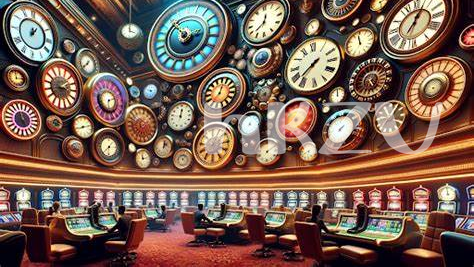
When the delicate balance shifts and gambling morphs from a leisurely hobby into a persistent habit, the consequences on both personal and financial fronts can be significant. It begins subtly—what starts as an innocent flutter on the pokies or a casual bet at the races can spiral into a scenario where the buzz of the gamble overshadows every other aspect of life. As we dive into this transformation, it’s crucial to understand the mechanisms at play, notably how gambling tricks the mind into blurring the lines between recreation and dependency. The incorporation of time management strategies becomes vital at this juncture, ensuring that individuals can separate the thrill of the bet from their daily responsibilities.
The reality hits hard when one finds themselves chasing losses, with the promise of the next big win always seeming just one more punt away. This cycle can easily lead to an environment where the ‘ Pharm Party’ of gambling becomes a daily routine rather than an occasional treat. Adopting a ‘Magic Mouthwash’ approach to cleanse this habit can help, where strong, preventive measures and time-bound limits on gambling activities act as the antidote. Individuals need to establish firm boundaries to ensure gambling remains a source of entertainment, without veering into the dangerous territory of addiction. Implementing gambling and time managment strategies is akin to placing a ‘safety cap’ on one’s pastime, ensuring it doesn’t spill over and inundate other aspects of their life.
| Strategy | Description | Benefit |
|---|---|---|
| Set Time Limits | Allocate specific time slots for gambling activities. | Helps prevent extended gaming sessions. |
| Financial Boundaries | Establish a fixed gambling budget. | Limits financial losses and prevents chasing losses. |
| Alternative Activities | Engage in non-gambling activities to fill leisure time. | Reduces gambling frequency and dependency. |
| Self-Exclusion | Utilize gambling platforms’ self-exclusion features. | Forces breaks from gambling, aiding in breaking the habit. |
| Seek Support | Join support groups or seek professional help. | Provides emotional support and practical advice on managing the habit. |
By recognizing the signs early and actively engaging in strategies for better gambling and time managment, individuals can maintain control over their hobby before it escalates into a harmful habit. These measures not only safeguard one’s well-being but also ensure that the essence of gambling as a form of leisure remains intact, without compromising the quality of life or financial stability.
🛑 Know When to Fold: Strategies for Time Management
Recognizing the moment to step away from the gambling table or slot machine entails more than just safeguarding one’s financial resources; it’s a critical strategy in ensuring time is utilised effectively, preventing what should be an enjoyable activity from morphing into a consuming habit. It’s akin to navigating through Pharm Land, where each decision on how we spend our time can lead to different outcomes, much like choosing between generics and brand-name medications. Employing time management strategies, similar to how a Pharm Tech meticulously organizes medications, can be the antidote to the haze of lost hours in the gambling realm. Setting definite boundaries, such as allocating specific time slots for gambling – ensuring they don’t coincide with key daily responsibilities or quality time with loved ones – acts as a safety cap, locking away the potential for time mismanagement.
Furthermore, understanding the concept of ‘enough’ plays a pivotal role, analogous to determining the right dosage – too much can lead to undesirable side effects, while the right balance can maintain well-being. Just as a patient is advised to follow the Sig on their script, gamblers should adhere to set limits on both time and money spent in gambling activities, practicing self-restraint and mindfulness to avoid the pitfall of chasing losses. This requires a level of self-awareness and control, teaching us to recognise the warning signs – the moment when fun shifts into compulsion. Perhaps, incorporating breaks, similar to a Pharmageddon day’s ‘lunch lockout’, where stepping away allows for a moment of clarity and reassessment, can prevent crossing the threshold from a hobby into a detriment. Admittingly, maintaining this balance is a challenging endeavor; however, it is undeniably critical for ensuring that gambling remains a leisure activity, not a drain on time and resources.
